Climate
-
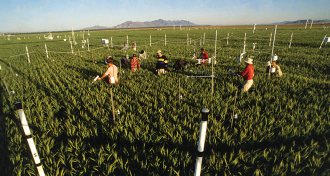 Health & Medicine
Health & MedicineWorries grow that climate change will quietly steal nutrients from major food crops
Studies show that rice, wheat and other staples could lose proteins and minerals, putting more people at risk of hunger worldwide.
By Susan Milius -
 Science & Society
Science & SocietyWould you opt to see the future or decipher the past?
Acting Editor in Chief Elizabeth Quill wonders what it would be like if scientists could see into the past and the future.
-
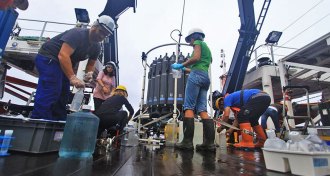 Oceans
OceansIn the deep ocean, these bacteria play a key role in trapping carbon
Mysterious nitrite-oxidizing bacteria capture more carbon than previously thought and may be the primary engine at the base of the deep ocean’s food web.
-
 Earth
EarthWhat the Pliocene epoch can teach us about future warming on Earth
By simulating the changes that occurred during the warm Pliocene epoch, researchers are trying to predict Earth’s future hundreds of years from now.
-
 Climate
ClimateClimate foiled Europeans’ early exploration of North America
The book ‘A Cold Welcome’ examines how the Little Ice Age and other climatic and geographic factors shaped colonial history.
By Diana Steele -
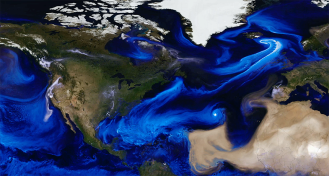 Earth
EarthWatch NASA’s mesmerizing new visualization of the 2017 hurricane season
Swirls of sand, sea salt and smoke make atmospheric currents visible in a new NASA visualization.
-
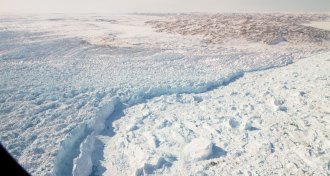 Climate
ClimateHumans are driving climate change, federal scientists say
Human influence “extremely likely” to be dominant cause of warming in last 70 years, U.S. climate report finds.
-
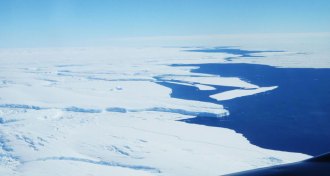 Earth
EarthWind may be driving the melting of East Antarctica’s largest glacier
Winds may be helping warm ocean waters speed up the melting of East Antarctica’s largest glacier.
-
 Animals
AnimalsClimate change may threaten these bamboo-eating lemurs
Longer dry spells and more nutrient-poor bamboo might eventually doom the greater bamboo lemur, a critically endangered species.
By Susan Milius -
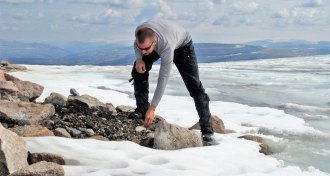 Climate
ClimateAs ice retreats, frozen mosses emerge to tell climate change tale
Plants long entombed beneath Canadian ice are now emerging, telling a story of warming unprecedented in the history of human civilization.
-
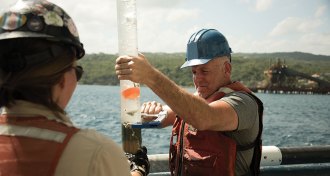 Climate
Climate‘Killer Hurricanes’ reconstructs the past to predict storms of the future
Geologists find clues to the future of deadly hurricanes, written in stone and sand, in the new NOVA documentary “Killer Hurricanes.”
-
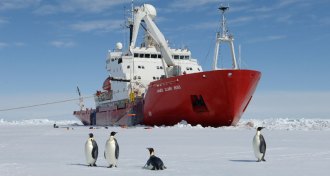 Earth
EarthWhen the Larsen C ice shelf broke, it exposed a hidden world
Scientists plan urgent missions to visit the world the Larsen C iceberg left behind.